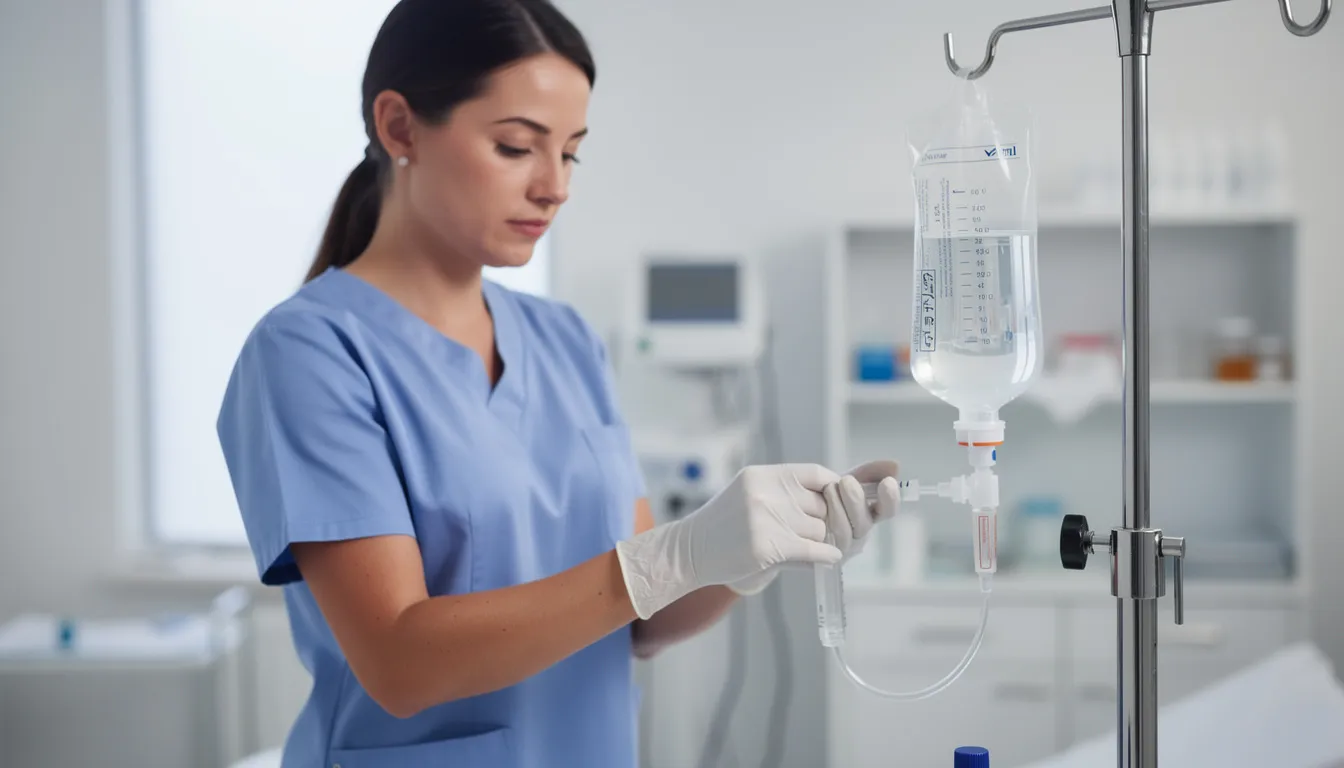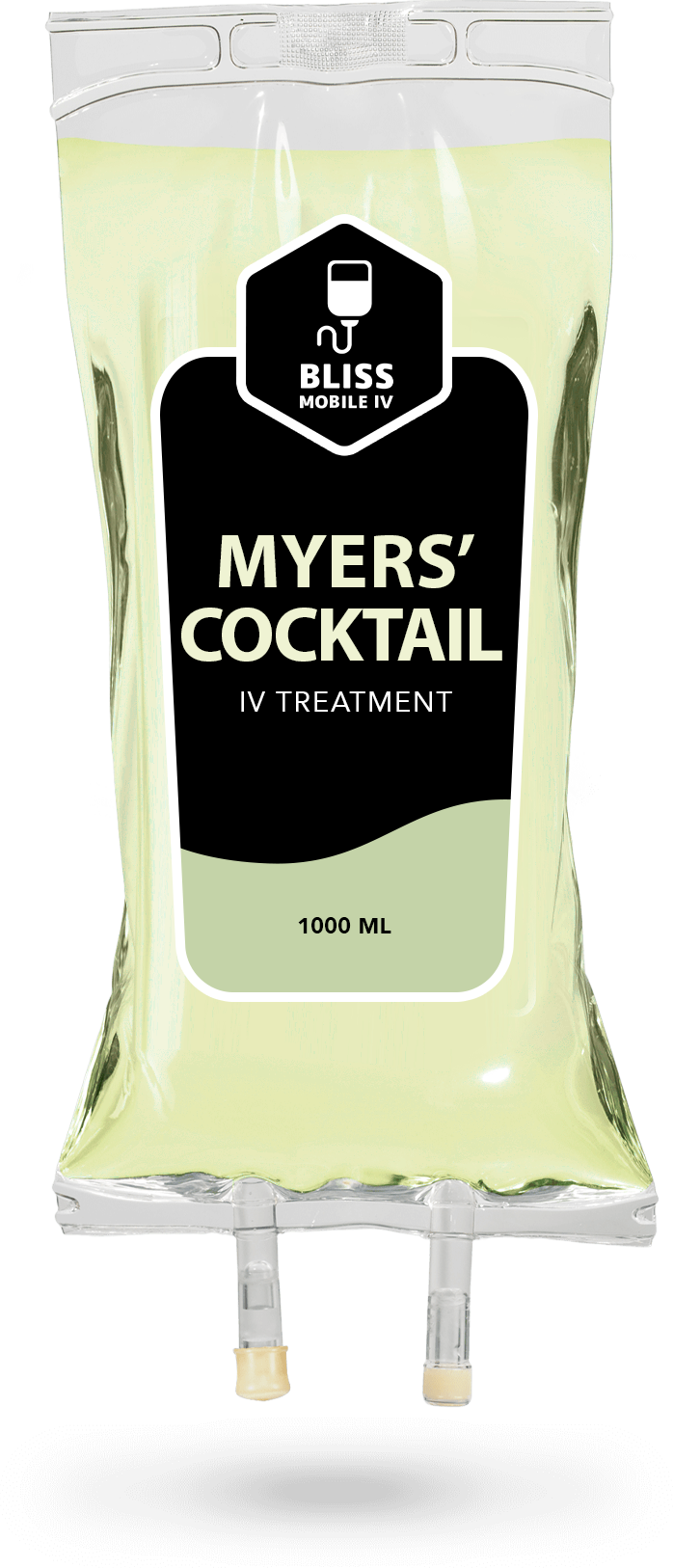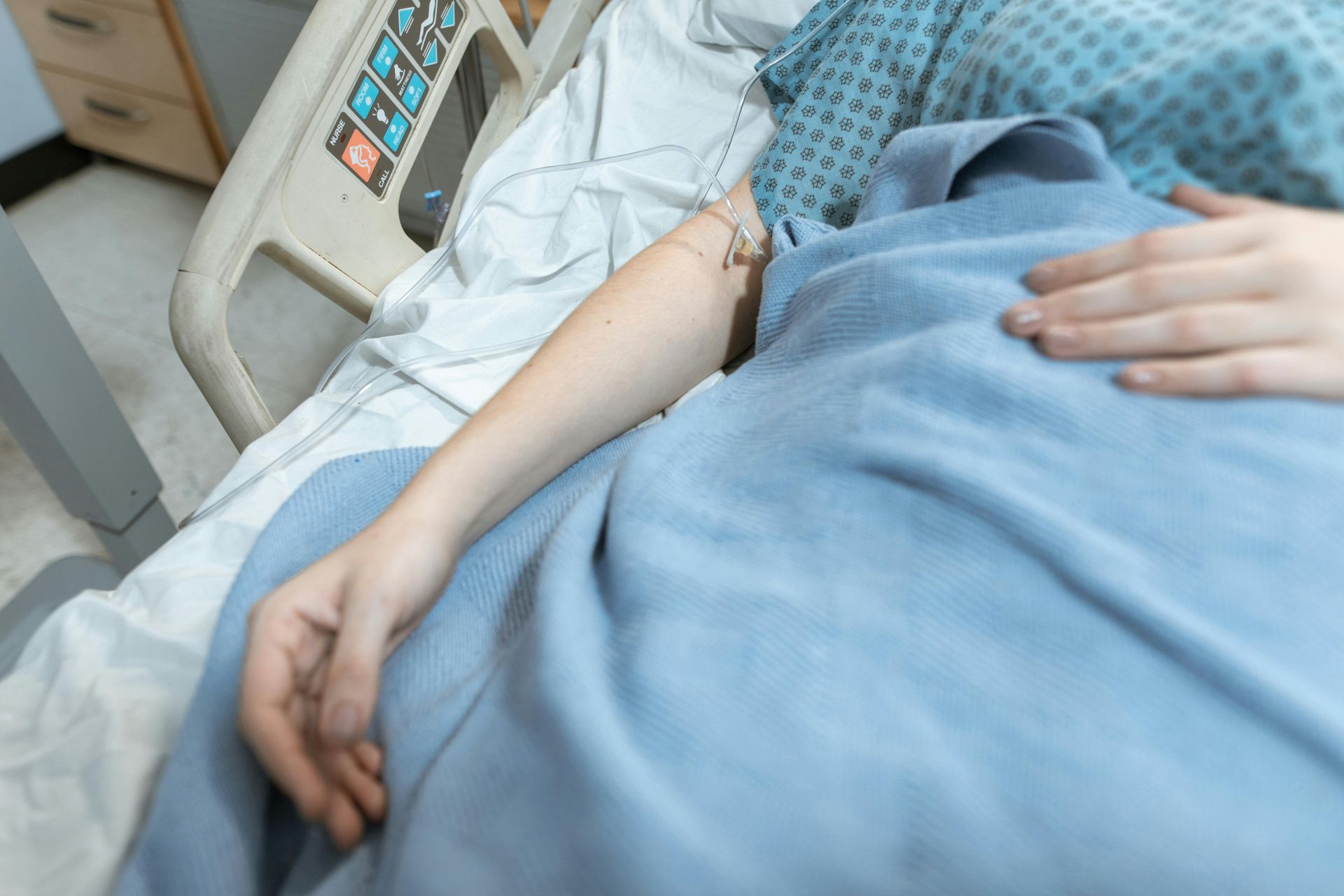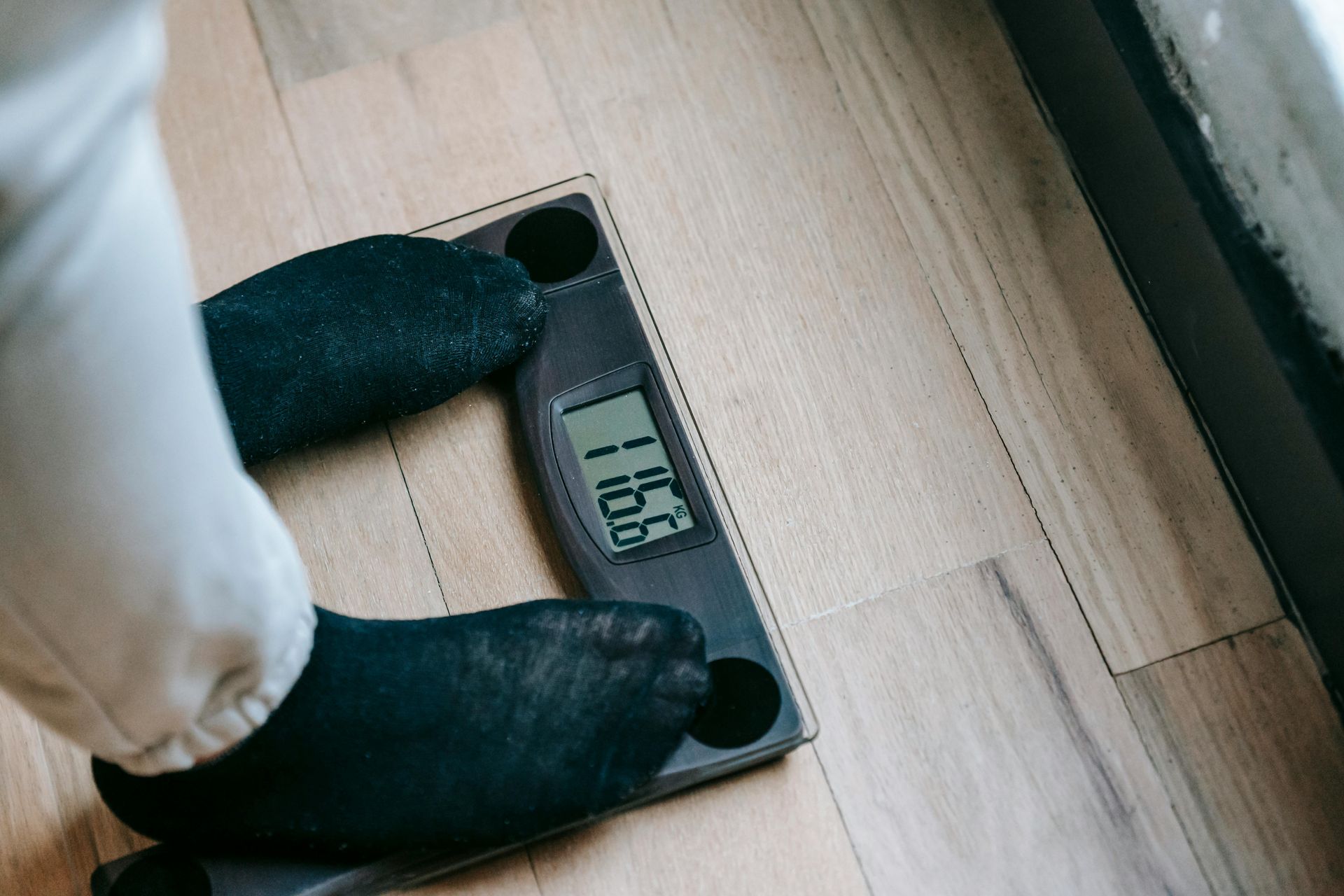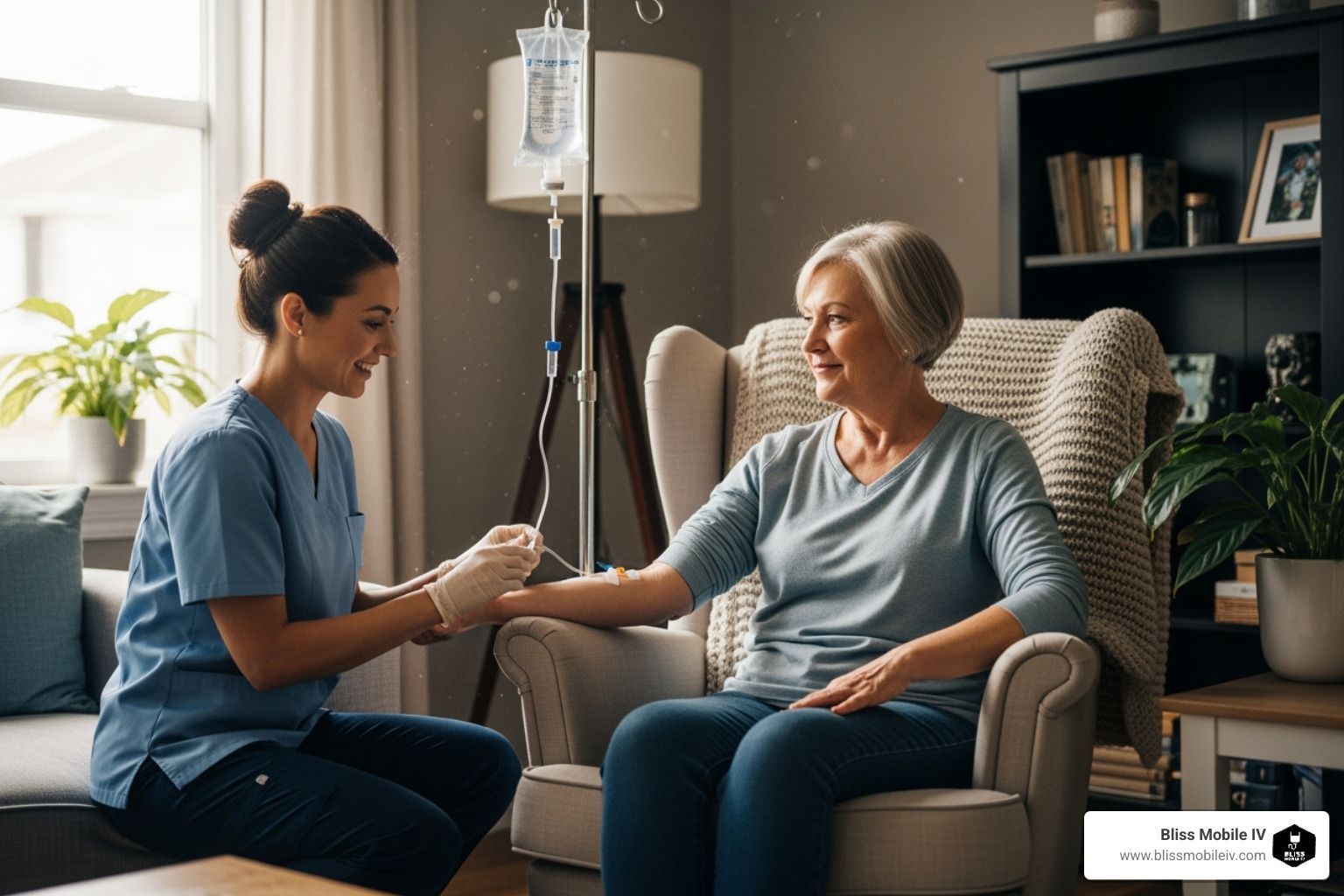Can IV Fluids Really Flush Away Your Hangover Blues?
Why IV Fluids for Hangover Are Taking Over Utah's Wellness Scene
IV fluids for hangover have become the go-to solution for busy professionals who need fast relief from alcohol's aftermath. But do these trendy treatments actually work, or are they just expensive placebos?
Quick Answer: What You Need to Know About IV Fluids for Hangovers
- What they are: 500-1000ml of saline solution with vitamins, electrolytes, and medications delivered directly into your bloodstream
- How they work: Bypass your digestive system for faster absorption than oral remedies
- Typical cost: $100-$400 per session (not covered by insurance)
- Time to relief: Most people feel better within 30-60 minutes
- Main benefits: Rapid rehydration, electrolyte replacement, and symptom relief
- Key limitation: Only address dehydration and nutrient depletion—not all hangover causes
The morning after a night out hits different when you're staring at a packed schedule. Your head pounds, your mouth feels like sandpaper, and that important client meeting suddenly seems impossible.
Here's what's happening in your body: alcohol acts as a diuretic, blocking a hormone called vasopressin that helps your kidneys retain water. This sends you running to the bathroom all night, flushing out not just fluids but crucial electrolytes like sodium, potassium, and magnesium.
But dehydration is just one piece of the hangover puzzle. Your liver is working overtime to process alcohol's toxic byproducts, your immune system is mounting an inflammatory response, and your blood sugar has crashed from the night before.
"Most people can expect to notice the benefits of IV hangover treatment about two to four hours after administration, with effects lasting into the following day," according to recent research on hangover IV therapy.
That's where IV fluids come in. Instead of waiting hours for oral remedies to work—if your stomach can even keep them down—IV therapy delivers hydration, vitamins, and medications straight to your bloodstream.

Hangover Science 101: Why You Feel Miserable
When your liver breaks down alcohol, it creates a toxic compound called acetaldehyde. This byproduct is literally poisonous—it's actually a recognized carcinogen. No wonder you feel like you've been poisoned, because in a way, you have been.
Alcohol triggers what scientists call a cytokine surge, which is your immune system's inflammatory response kicking into overdrive. It's the same reaction your body uses to fight off infections, which explains why you feel achy and feverish.
Meanwhile, all that alcohol has created massive oxidative stress throughout your system. Think of it like internal rust forming faster than your body can clean it up. Your natural antioxidant defenses are completely overwhelmed.
The type of alcohol you consumed actually matters a lot. Congeners —those compounds that give darker liquors their rich flavors and colors—make hangovers significantly worse. That's why a night of whiskey or red wine tends to hit you harder than vodka or white wine would.
The diuretic effect is what really amplifies everything else. When alcohol blocks vasopressin production, your kidneys lose their ability to hold onto water efficiently. You're literally flushing away the electrolytes your brain and muscles desperately need to function properly.
Scientific research on hangover mechanisms shows that about 75% of drinkers experience at least one hangover per year. Even more telling? About 10% of U.S. adults admit to showing up to work hungover.
The Alcohol Metabolism Process
Understanding exactly how your body processes alcohol helps explain why hangovers feel so brutal. When you drink, about 20% of alcohol gets absorbed directly through your stomach lining, while the remaining 80% enters your bloodstream through your small intestine.
Your liver can only process about one standard drink per hour —that's roughly 14 grams of pure alcohol. When you drink faster than this rate, alcohol accumulates in your bloodstream, leading to intoxication. But the real trouble starts during the breakdown process.
The enzyme alcohol dehydrogenase (ADH) converts ethanol into acetaldehyde, which is up to 30 times more toxic than alcohol itself. Then aldehyde dehydrogenase (ALDH) breaks down acetaldehyde into acetate, which your body can safely eliminate.
Here's the problem: if you overwhelm this system with too much alcohol, acetaldehyde builds up faster than your liver can clear it. This toxic compound circulates through your bloodstream, causing nausea, headaches, and that general feeling of being poisoned.
Dehydration & Electrolyte Imbalance
Medical-grade normal saline(0.9% sodium chloride) and lactated Ringer's solution are considered the gold standards for rehydration because they closely match your blood's natural composition.
When you're dehydrated from drinking, you're not just missing water. Your body is desperately low on sodium, which is critical for nerve function and blood pressure stability. You're also missing potassium, which your muscles need for proper contractions—including your heart muscle.
Magnesium is another major casualty. This mineral is involved in over 300 different enzymatic reactions in your body, so when you're running low, everything starts to feel off.
The dehydration process is more complex than simple fluid loss. Alcohol suppresses antidiuretic hormone (ADH), which normally tells your kidneys to conserve water. Without this hormone, your kidneys keep producing urine even when your body desperately needs to retain fluids.
This creates a cascade effect: as you lose fluids, your blood volume decreases, leading to lower blood pressure and reduced oxygen delivery to your brain. That's why you feel dizzy, confused, and develop those pounding headaches.
Inflammatory Response and Immune System Chaos
Alcohol doesn't just dehydrate you—it triggers a full-scale immune system response. Your body releases pro-inflammatory cytokines like interleukin-1β, interleukin-6, and tumor necrosis factor-alpha. These are the same inflammatory molecules your body produces when fighting infections.
This inflammatory cascade affects your entire nervous system. Neuroinflammation contributes to headaches, brain fog, and mood changes. The inflammation also affects your gastrointestinal tract, explaining why you might experience nausea, stomach pain, or digestive issues.
Research shows that people with higher baseline inflammation levels tend to experience worse hangovers. This might explain why some people seem more susceptible to morning-after misery than others.
More Than Just Dehydration
Researchers have found that electrolyte levels don't actually differ that much between hungover and non-hungover people. This means dehydration is just one piece of a much more complex puzzle.
Your immune response is flooding your bloodstream with inflammatory molecules. Your gastrointestinal tract is irritated from alcohol's direct toxic effects. Vasodilation —the widening of blood vessels—is causing those pounding headaches. And hormone swings are messing with your mood and energy levels.
Sleep disruption plays a major role too. Alcohol might help you fall asleep initially, but it severely disrupts your sleep architecture. You miss out on crucial REM sleep and deep sleep stages, leaving you feeling unrested even if you got plenty of hours in bed.
Blood sugar fluctuations add another layer of complexity. Alcohol initially raises blood sugar, then causes it to crash as your body overcompensates with insulin release. These glucose swings contribute to fatigue, irritability, and cravings for sugary foods.
This complexity explains why simply chugging water won't cure a hangover. You need a multi-pronged approach that addresses hydration, inflammation, nutrient depletion, and symptom management all at once.
What Are IV Fluids for Hangover Relief, and How Do They Work?
IV fluids for hangover therapy works by delivering a carefully crafted solution straight into your bloodstream through a small, sterile catheter. Think of it as giving your body exactly what it needs without having to negotiate with your queasy stomach.
A typical hangover IV session involves 500-1000ml of sterile saline solution improved with vitamins, medications, and antioxidants. The rapid bloodstream delivery means these nutrients reach your cells within minutes instead of hours.

When you drink fluids orally, your body only absorbs about 20-50% of what you consume—and that's assuming your stomach isn't rebelling. With IV therapy, you get 90-100% absorption because we're bypassing digestion entirely.
| Method | Absorption Rate | Time to Effect | Bioavailability |
|---|---|---|---|
| IV Fluids | 90-100% | 15-30 minutes | Complete |
| Oral Sports Drink | 20-50% | 1-2 hours | Variable |
| Oral Supplements | 10-30% | 2-4 hours | Limited |
Typical IV Fluids for Hangover Ingredients
Every hangover IV starts with medical-grade hydration using either normal saline(0.9% sodium chloride) or lactated Ringer's solution —the same sterile fluids used in hospitals.
The B-complex vitamins are often the star of the show. B1 (Thiamine) supports your nervous system, B2 (Riboflavin) is essential for energy production, and B3 (Niacin) helps your liver process alcohol byproducts more efficiently.
B6 (Pyridoxine) reduces nausea and supports brain function. B12 (Cobalamin) boosts energy and mental clarity.
Vitamin C appears in most formulations at doses of 1000-2000mg—far higher than you'd typically consume orally. This powerful antioxidant helps combat the oxidative stress that alcohol creates.
Magnesium is crucial for muscle relaxation and headache relief. Most hangover IVs include 200-400mg of magnesium.
Glutathione is the master antioxidant your liver uses for detoxification. Alcohol depletes your natural glutathione stores, so replenishing them gives your liver the tools it needs to clear remaining toxins.
Many providers also include targeted medications like anti-nausea medication(Zofran), pain relievers(Toradol), and anti-inflammatory drugs.
More info about IV Therapy for Hangovers can help you understand which combination works best for your needs.
Add-Ons & Custom Cocktails
The "Banana Bag" gets its nickname from the bright yellow color that comes from high-dose B vitamins. The Myers' Cocktail combines magnesium, calcium, B vitamins, and vitamin C in proportions that support overall wellness.
Specialized add-ons include Taurine for cardiovascular support, NAC (N-Acetylcysteine) as a precursor to glutathione, and Zinc for immune function and alcohol metabolism support.
Are IV Fluids Effective? The Current Evidence
While the science behind IV therapy makes perfect sense—your body needs hydration and nutrients, and IV delivery gets them there fast—the research landscape is surprisingly sparse.
Most clinical studies focus on severely intoxicated patients in emergency rooms, not typical hangover sufferers. A 2013 randomized controlled trial and a 2023 ER study found that IV fluids didn't significantly speed recovery for people with acute alcohol intoxication. However, these studies looked at medically drunk patients, not someone nursing a headache after a night out.
What we do know for certain is that IV fluids for hangover treatment rapidly corrects dehydration and electrolyte imbalances. When your body is missing fluids and essential minerals, replacing them quickly makes a real difference.
Scientific research on IV fluid therapy suggests that while we need more large-scale studies, the physiological benefits of rapid rehydration and nutrient replacement are well-established.
The Research Gap
Here's the frustrating reality: most hangover research focuses on prevention or oral treatments, not IV therapy. The studies that do exist on IV fluids typically examine emergency room patients with severe alcohol poisoning—a very different scenario from typical hangover recovery.
A 2019 systematic review of hangover treatments found limited high-quality evidence for most interventions, including IV therapy. However, the review noted that IV treatments showed promise for rapid symptom relief, particularly for dehydration-related symptoms.
Anecdotal evidence from thousands of IV therapy sessions suggests high satisfaction rates. Most mobile IV companies report that 85-95% of clients feel significantly better within an hour of treatment. While this isn't the same as controlled clinical trials, it's compelling real-world data.
The challenge is that hangovers are highly subjective experiences. What feels like complete relief to one person might feel like modest improvement to another. This makes it difficult to design standardized research protocols.
Physiological Mechanisms That Support IV Therapy
Even without extensive hangover-specific research, we understand the underlying physiology well enough to predict IV therapy's benefits.
Rapid rehydration is perhaps the most straightforward benefit. When you're dehydrated, your blood volume decreases, leading to reduced oxygen delivery to your brain and other organs. IV fluids restore blood volume within minutes, not hours.
Electrolyte replacement addresses the mineral imbalances that contribute to muscle cramps, headaches, and fatigue. Sodium helps maintain proper nerve function and blood pressure. Potassium supports muscle contractions and heart rhythm. Magnesium aids in over 300 enzymatic reactions.
Vitamin B complex supplementation through IV delivery bypasses absorption issues. These vitamins are crucial for energy metabolism and nervous system function—both of which are compromised during hangovers.
Antioxidant support through high-dose vitamin C and glutathione helps combat the oxidative stress that alcohol creates. While your body will eventually clear these toxins naturally, providing extra antioxidant support can speed the process.
Are IV Fluids Really More Effective Than Oral Remedies?
The onset time difference is where IV therapy really shines. While sports drinks might take 1-2 hours to help, IV therapy starts working within 15-30 minutes.
The absorption rates tell the story. Oral supplements only deliver 10-30% of nutrients, sports drinks achieve 20-50%, but IV therapy delivers 90-100% directly to your bloodstream.
IV fluids for hangover treatment offers rapid symptom relief within 15-30 minutes, complete nutrient absorption, and works even when you're too nauseated to drink. You also get customizable ingredients and professional supervision.
The downsides include high cost ($100-400 per session), needle insertion requirements, small infection risk, and no insurance coverage.
Comparing Treatment Modalities
Oral rehydration works well for mild hangovers when you can keep fluids down. It's cost-effective and accessible, but absorption is limited and onset is slow. If you're vomiting, oral remedies become nearly impossible.
Sports drinks provide some electrolytes but often contain excessive sugar and artificial ingredients. They're better than plain water but still face absorption limitations.
Electrolyte powders offer better mineral ratios than sports drinks and avoid excess sugar. However, they still require functional digestion and take time to work.
IV therapy bypasses all these limitations but comes with higher costs and minor medical risks. It's most valuable when you need rapid relief or can't tolerate oral intake.
What Symptoms Improve—And Which Don't
Headaches often resolve within 30 minutes as blood volume normalizes and electrolyte balance is restored. The rapid rehydration helps reduce the vascular changes that contribute to hangover headaches.
Thirst and dry mouth get immediate relief as IV fluids restore proper hydration status. Many clients report this as the first symptom to improve.
Fatigue starts lifting as proper hydration returns and B vitamins support energy metabolism. However, if fatigue is primarily due to sleep deprivation, IV therapy won't completely resolve it.
Muscle cramps and weakness ease once electrolytes are replaced. Magnesium and potassium are particularly important for proper muscle function.
Lightheadedness improves quickly because IV therapy restores blood volume and stabilizes blood pressure. This is often one of the most dramatic improvements clients notice.
With anti-nausea medications like ondansetron (Zofran), that queasy feeling often disappears within 15-30 minutes of IV administration.
However, anxiety and mood changes are tied to neurotransmitter disruption that IV therapy can't directly fix. These symptoms may require time for your brain chemistry to normalize.
Brain fog may persist until alcohol metabolites fully clear from your system. While IV therapy can support this process, it can't instantly reverse all cognitive effects.
Sleep debt is real—IV therapy can't replace missed REM sleep or repair the sleep disruption that alcohol causes. You might feel more alert, but true recovery requires proper rest.
Individual Response Variations
Not everyone responds to IV therapy the same way. Body weight affects how much fluid and medication you need. Baseline health status influences how quickly you recover. Severity of dehydration determines how dramatic the improvement feels.
Age plays a role too—younger people often bounce back faster, while older adults may need more comprehensive treatment. Drinking patterns matter as well; people who drink regularly may have different nutritional deficiencies than occasional drinkers.
Genetic factors influence alcohol metabolism. People with genetic variations in alcohol dehydrogenase or aldehyde dehydrogenase enzymes may experience different hangover patterns and treatment responses.
Benefits, Risks & Who Should Skip the Drip
The biggest draw is speed. While sports drinks might take hours, IV therapy typically provides symptom relief in 30-60 minutes. That's the difference between calling in sick and showing up ready to tackle your day.
The convenience factor has revolutionized hangover recovery. Mobile IV services mean a licensed nurse comes directly to you—whether at home, a hotel, or your office.
Group sessions have become popular for weddings, bachelor parties, and corporate events. There's something oddly bonding about recovering together with matching IV drips.
But IV fluids for hangover aren't risk-free. Any needle insertion carries a small infection risk. Thrombophlebitis(vein inflammation) can occur, causing pain and swelling at the injection site.
More serious concerns include fluid overload, especially dangerous for people with heart or kidney problems. Electrolyte overshoot is another risk—too much sodium or potassium delivered too quickly can cause dangerous imbalances.

Certain people should exercise serious caution. If you have kidney disease, your body can't process excess fluids properly. Heart failure patients face similar risks—their hearts may not handle sudden blood volume increases.
Pregnancy caution is essential since there's limited safety data on IV vitamin therapy during pregnancy.
Safety Checklist Before Booking
A proper medical history review should happen before any needles come out. Insist on a licensed provider —only nurses, nurse practitioners, or physicians should be starting IVs.
Sterile technique is non-negotiable. Everything should be single-use and medical-grade. Dose limits matter—reputable providers calculate appropriate concentrations based on your weight and medical history.
When IV Fluids Become Medically Necessary
Sometimes hangovers cross into medical emergency territory. Severe dehydration with persistent vomiting that prevents keeping down fluids requires emergency care.
If you've been vomiting for more than 12 hours, can't keep down water, or show signs of severe dehydration like dizziness when standing or rapid heartbeat, you need emergency medical care—not wellness IV therapy.
Alcohol poisoning requires immediate hospital treatment. Warning signs include confusion, vomiting, seizures, slow breathing, and unconsciousness.
Beyond the Drip: Costs, Alternatives & Prevention Strategies
IV fluids for hangover typically cost $100-$400 per session and aren't insurance-covered since they're considered elective wellness treatments.

Mobile services typically run $200-400 for convenience, while clinic visits cost $100-300. Many providers offer group discounts for three or more people.
But IV fluids for hangover aren't your only option. Oral rehydration packets contain scientifically formulated electrolyte ratios for $1-2 per packet. Electrolyte drinks cost $2-5, bone broth provides sodium and nutrients for $3-6, and NSAIDs tackle inflammation for $0.10-0.50 per dose.
The smartest approach? Prevention strategies. Pacing drinks to one per hour gives your liver processing time. Choosing clear spirits over dark liquors reduces congener exposure. Eating before drinking slows alcohol absorption. Alternating with water maintains hydration. Adequate sleep helps recovery.
More info about Hydration IV Near Me can help you find convenient options when prevention fails.
Budget-Friendly DIY Options
Create an effective recovery protocol at home for a fraction of the cost. A simple DIY electrolyte solution combines 1 liter water, 1/2 teaspoon salt, 2 tablespoons sugar, and 1/4 teaspoon potassium salt.
Your supplement stack might include B-complex vitamin, vitamin C (1000mg), magnesium supplement, and OTC anti-nausea medication. Total cost? Under $10 compared to $200-400 for IV therapy.
The catch is absorption. When you're nauseated and vomiting, keeping down oral remedies becomes nearly impossible. That's when IV therapy really shines.
Can Pre-Party IV Fluids Prevent Hangovers?
Proactive hydration involves getting IV therapy before drinking to "pre-load" your system. The theory makes sense: start hydrated, maintain electrolyte balance, and give your liver extra antioxidant support.
However, limited evidence exists for this approach. Lifestyle habits consistently outperform any single intervention: staying hydrated throughout the day, eating substantial meals before drinking, taking B vitamins and magnesium supplements, and pacing alcohol consumption.
Frequently Asked Questions about IV Hangover Therapy
How much does a hangover IV cost?
The short answer? $100-400 per session. Basic hydration packages start around $100-150 for simple saline with basic vitamins. Premium formulations with multiple medications and specialized add-ons can reach $400.
Mobile services typically cost $50-100 more than clinic visits, but when you can barely lift your head, having someone come to you is worth it. Many providers offer group discounts for wedding parties or corporate events.
How fast will I feel better after an IV?
Most people notice improvement within 15-30 minutes of starting the IV, with full effects by 30-60 minutes. If you're severely dehydrated, you'll often feel initial relief almost immediately. Anti-nausea medications work within minutes.
Some clients feel "completely normal" within an hour, while others experience gradual improvement over 2-4 hours. Even if you don't feel 100% immediately, you're usually functional enough to tackle your day.
Will my insurance pay for IV fluids for a hangover?
Unfortunately, no—insurance won't cover hangover IV therapy. These treatments fall into the "elective wellness services" category, not medically necessary care.
If you end up in the emergency room for severe dehydration or alcohol poisoning, insurance may cover those IV fluids. But routine hangover treatment comes straight out of your pocket.
There's a small possibility that HSA/FSA accounts might allow reimbursement if deemed medically necessary by a physician, but this is rare for standard hangover care.
Conclusion
So, can IV fluids really flush away your hangover blues? The answer depends on what you need.
IV fluids for hangover treatment excel at rapidly fixing dehydration and nutrient depletion—two major culprits behind morning-after misery. When you get fluids, electrolytes, and vitamins delivered straight to your bloodstream, you're bypassing delays and absorption issues that come with oral remedies.
Most people genuinely feel better within 30-60 minutes. That's your body getting exactly what it needs, when it needs it, in the most efficient way possible.
But hangovers are complicated, involving inflammation, toxic alcohol byproducts, disrupted sleep, and immune system chaos. IV therapy tackles hydration and nutrients beautifully, but can't undo every biological process alcohol set in motion.
The cost factor is real —$100-400 per session isn't pocket change. For routine weekend recovery, simpler remedies often work well enough. But when you absolutely need to function quickly, have important meetings, or can't keep anything down, IV therapy can be a genuine lifesaver.
The best hangover strategy? Prevention wins every time. Pacing drinks, staying hydrated, eating well, and getting decent sleep will always beat any cure.
But life happens. Sometimes celebrations get out of hand, and sometimes you need to get back on your feet quickly. That's where mobile IV therapy shines.
Here in Utah, we've seen how IV fluids for hangover treatment helps people recover when life doesn't pause for poor choices. Whether you're in Salt Lake City dealing with a work crisis or in Cedar City trying to salvage a family weekend, our mobile service means professional medical treatment in your own space.
Our no-travel, no-hidden-fees approach means effective relief when you need it most. No judgment, no hassle—just professional care delivered to your door.
More info about at-home IV service is available when you need professional hangover relief.
Remember: If you experience severe symptoms like persistent vomiting, confusion, chest pain, or signs of alcohol poisoning, seek emergency medical care immediately.
